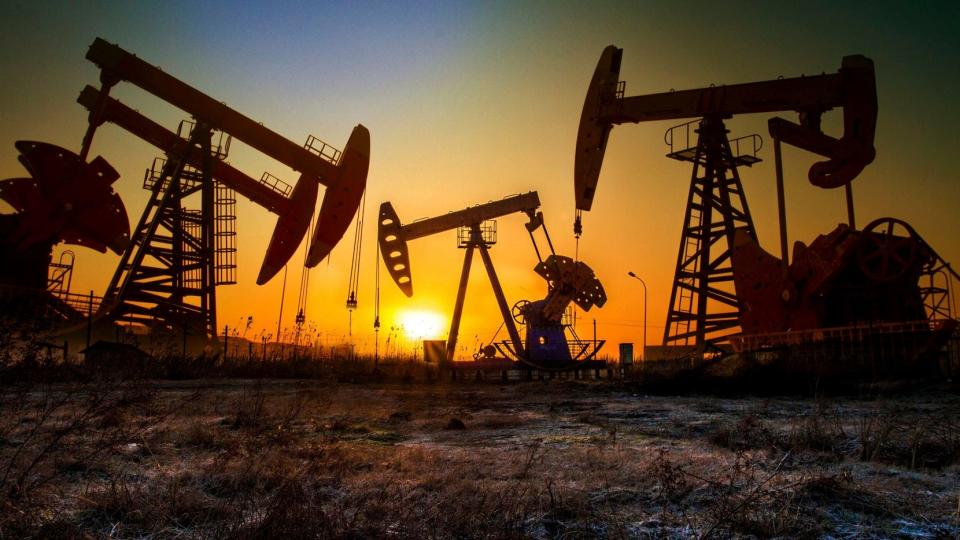Congressional Democrats, Republicans clash over Biden oil proposals
- Oops!Something went wrong.Please try again later.
- Oops!Something went wrong.Please try again later.
- Oops!Something went wrong.Please try again later.
Democrats on the U.S. House Natural Resources Committee encouraged President Joe Biden to take stronger action to limit oil and gas production, while Republicans said reducing domestic production would only increase global emissions from overseas suppliers.
The debate arose in a hearing Thursday, less than a week after the U.S. Interior Department released a report that called for fiscal updates to the federal oil and gas leasing programs but offered little to lessen the industry’s climate impacts.
Democrats said the administration left a critical gap that would hamper efforts to meet Biden’s climate commitments.
Rep. Alan Lowenthal, a California Democrat who chairs the Energy and Mineral Resources Subcommittee, said the proposals, which include raising rates for royalties and bonding, are welcome but insufficient.
“These changes are long overdue,” Lowenthal said. “But a glaring omission of the report was any discussion on the emissions that result from oil and gas drilling on public lands. In my view, this was a missed opportunity, and it’s a critical issue that we must address.”
Lowenthal said the report’s recommendations are “minor reforms” that will fail to put the U.S. on a path to meeting its climate pledges.
More: Oil industry and Biden administration clash over latest proposals
He and full committee Chairman Raúl Grijalva, D-Ariz., said the administration could use its existing authority to reduce emissions more significantly from federal lands and waters.
Environmental activists have asked Biden to permanently ban oil and gas leasing on federal lands and waters, including the Gulf of Mexico, saying it is a necessary step to reach the administration’s lofty climate goals.
'Misled, disheartened and disappointed'
“I cannot help but feel misled, disheartened and disappointed when I witness actions such as the Department of Interior taking steps to lease more public lands to oil and gas,” Jade Begay, the climate justice campaign director with the Native American advocacy group NDN Collective and a member of the White House Environmental Justice Advisory Council, testified at the hearing.
The Biden administration paused new leases on federal lands and waters while its review was ongoing, but a federal judge in Louisiana ordered the government to restart the program in June after oil states sued.

The panel’s Republicans largely objected to Democratic calls for reducing energy production on federal lands and waters.
Giving up domestic production would lead to increased development from members of OPEC, Russia and other countries with less-stringent environmental standards, they said.
Republicans warn against ‘unilateral’ action
Declines in U.S. fossil fuel production would likely be replaced in the global market by OPEC oil, Russian natural gas and coal from other countries, said Nick Loris, the vice president of public policy with the Conservative Coalition for Climate Solutions, a group that advocates for market climate strategies.
“I continue to be confused by why some members of this panel that advocate—or suggest they’re advocating — for a clean energy future but actually push policies that result in higher global emissions,” Rep. Garret Graves, R-Baton Rouge, said.
Republicans downplayed the climate impact that reducing oil and gas production on federal lands and waters could have, saying other global factors are more important.
“No matter how much they demonize domestic oil and gas production, America is not the problem,” the panel’s ranking Republican, Pete Stauber of Minnesota, said of Democrats’ calls for reduced development on federal lands.
“We can’t have that big of an impact just by changing what we do here at home,” Rep. Bruce Westerman of Arkansas, the ranking Republican on the full committee, said.
What about China?
Wisconsin’s Tom Tiffany asked Begay what commitments China made at last month’s United Nations Climate Conference to reduce oil and gas development, implying that any moves by the U.S. to reduce emissions would not be matched by the world’s second-largest economy.
“America unilaterally disarming in regard to energy independence will lead to our decline,” he said later.
But Democrats said U.S. leadership was important to international action.
“To lead in the world, we need to get our own house in order,” Grijalva said. “This includes managing and reducing greenhouse gas emissions in our public lands and waters.”
Why it matters to you
The issue: Biden's latest plan to restrict oil and gas production on federal lands and waters, including the Gulf of Mexico.
Local impact: Industry advocates say plans would make it more expensive and difficult to drill for oil in the Gulf, costing the area jobs. Environmentalists say failure to curb fossil fuel emissions will lead to stronger Gulf storms and rising seas that threaten to wipe out coastal communities like Terrebonne and Lafourche.
— Jacob Fischler covers federal policy as a senior reporter in the States Newsroom Washington bureau. States is a nonprofit news organization that focuses on state politics and policy.
This article originally appeared on The Courier: Biden oil proposals fuel partisan debate in Congress

